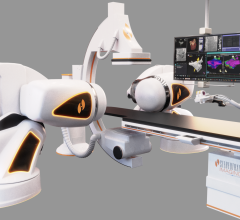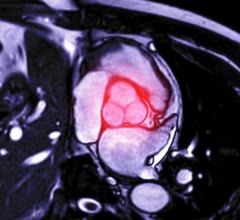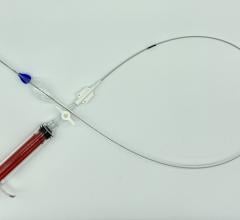
Courtesy Getty Images
November 22, 2021 — The Minneapolis Heart Institute Foundation (MHIF) announced the publication of research showing improved patient outcomes and significantly decreased 30-day mortality in aortic dissection patients managed through a unique comprehensive care strategy designed by a team with multidisciplinary expertise. Research is often focused on a new technology or technique; this research highlights the importance of the process, protocol and expertise involved in determining the care pathway for patients that can lead to the best outcomes for all involved, even in cases where more complex repairs were performed. The manuscript, “Impact of a multidisciplinary acute aortic dissection program: Improved outcomes with a comprehensive initial surgical repair strategy,” was published in the Journal of Vascular Surgery.1
“Several years ago, we formed a multidisciplinary acute aortic program that showed we could impact the time to diagnose and treat this lethal condition,” said Kevin Harris, M.D., cardiologist and researcher, MHIF. “This new published analysis looks at the outcomes when the strategy changed a couple of years ago where the vascular surgeons routinely joined the cardiovascular surgeons in the initial evaluation, and often treatment, of the patients with type A dissection involving the aorta closest to the heart. Due to the efforts of our talented cardiovascular and vascular surgeons, we have seen more patients get lifesaving surgery, the surgery is more comprehensive, and surgical mortality has dramatically decreased.”
Vascular surgeons focus on the veins and arteries beyond the heart. Cardiac surgeons traditionally manage veins and vessels in and around the heart, including life-threatening acute aortic dissection (AAD). This research shows that involving both vascular and cardiac surgeons in the initial evaluation led to treatment plans that included more complex surgical procedures, addressing more than just the initial repair of the acute aortic dissection (AAD). For patients, the results show that while they face recovery from a more comprehensive initial surgical repair, there is a significant improvement in long-term outcomes, including survival.
Acute aortic dissection (AAD) involves a tear in the inner layer of the aorta, the body’s main artery supplying blood to the body, and is associated with high mortality (1–2% mortality every hour in the first 24–48 hours). The primary goal of care for these patients in the acute setting is survival—preventing death—and it requires quick diagnosis and surgical treatment. The goal of this research is to integrate care between specialties to expedite the diagnosis and transfer, standardize pharmacotherapy and pre- and intra-operative imaging protocols, expedite operating room mobilization and determine the optimal surgical approach for these patients.
About Minneapolis Heart Institute Foundation
The Minneapolis Heart Institute Foundation (MHIF) strives to create a world without heart and vascular disease. To achieve this bold vision, it is dedicated to improving the cardiovascular health of individuals and communities through innovative research and education.
Scientific Innovation and Research – MHIF is a recognized leader across all specialties of heart and vascular research. Each year, MHIF leads more than 200 research studies with more than 2,200 patients and publishes more than 200 articles to share learnings from research. MHIF research has improved the standard of care around the world through protocols like Level One for heart attack, which significantly improved outcomes and survival for patients.
Education and Outreach – MHIF provides more than 10,000 hours of education each year putting its research into practice to improve outcomes among health care providers. This commitment extends to patients and caregivers through community health and education events to raise awareness of heart care and research, engaging individuals in their own health.
The Minneapolis Heart Institute Foundation’s work is funded by generous donors and sponsors and engages in cutting-edge research initiatives with its physician partners from the Minneapolis Heart Institute at Abbott Northwestern Hospital and at 38 community sites across Minnesota and western Wisconsin.
For more information: mplsheart.org
Reference:
1 Impact of a multidisciplinary acute aortic dissection program: Improved outcomes with a comprehensive initial surgical repair strategy. JesseManunga, JennaSmith, Christian W.Schmidt, et al. Journal of Vascular Surgery. Published online Sept. 8, 2021. https://doi.org/10.1016/j.jvs.2021.08.058.
https://www.sciencedirect.com/science/article/abs/pii/S0741521421019984


 September 18, 2025
September 18, 2025 









